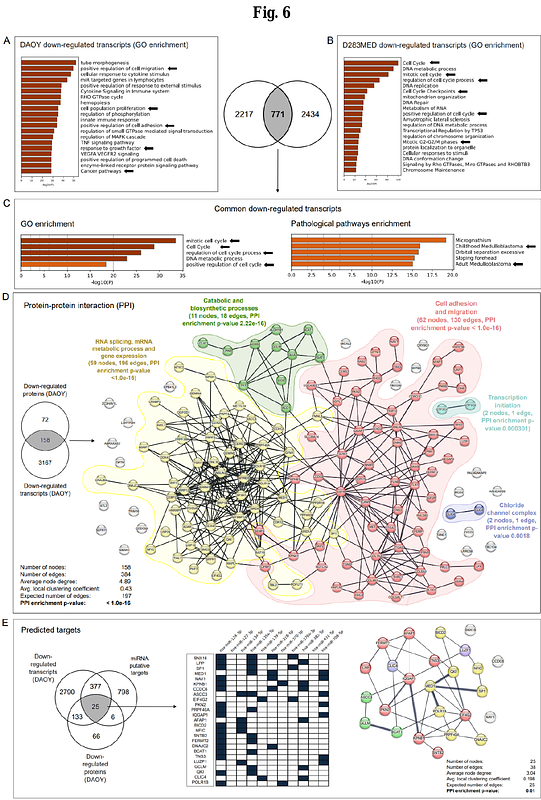A microRNA-based Therapy against Human Medulloblastoma Validated in a Xenotransplant Model using Wild-Type Mouse Embryos

A microRNA-based Therapy against Human Medulloblastoma Validated in a Xenotransplant Model using Wild-Type Mouse Embryos
Spattini, C.; La Rosa, L.; Pereira, R. C.; Giantomasi, L.; Pelizzoli, R.; Tuntevski, K.; Battaglia, G.; Di Fonzo, A.; Armirotti, A.; De Pietri Tonelli, D.
AbstractMedulloblastoma (MB) is the most prevalent malignant pediatric brain tumor. Its poor prognosis is driven by therapy-resistant cancer stem-like cells (CSCs), which are challenging to study in traditional preclinical models. MicroRNAs (miRNAs) modulate tumor-related pathways by repressing oncogenic gene expression, a function lost in cancer. We assessed the therapeutic potential of miRNA restoration in human MB from distinct subgroups, validated in a xenotransplant model using wild-type (WT) mouse embryos. Multi-omics, imaging, and in silico analyses were employed to identify underlying mechanisms and therapeutic targets. Human MB cells formed tumors in embryonic mouse brains that mirrored key MB features, including vascularized CSC niches and metastases. Restoration of underexpressed miRNAs reduced tumor growth and invasiveness in vitro and in vivo. These miRNAs synergistically repressed gene networks related to cell adhesion and RNA metabolism, shared oncogenic pathways across MB subgroups. Our embryonic xenotransplant model provides a clinically relevant platform for evaluating next-generation gene therapies in pediatric brain cancer.